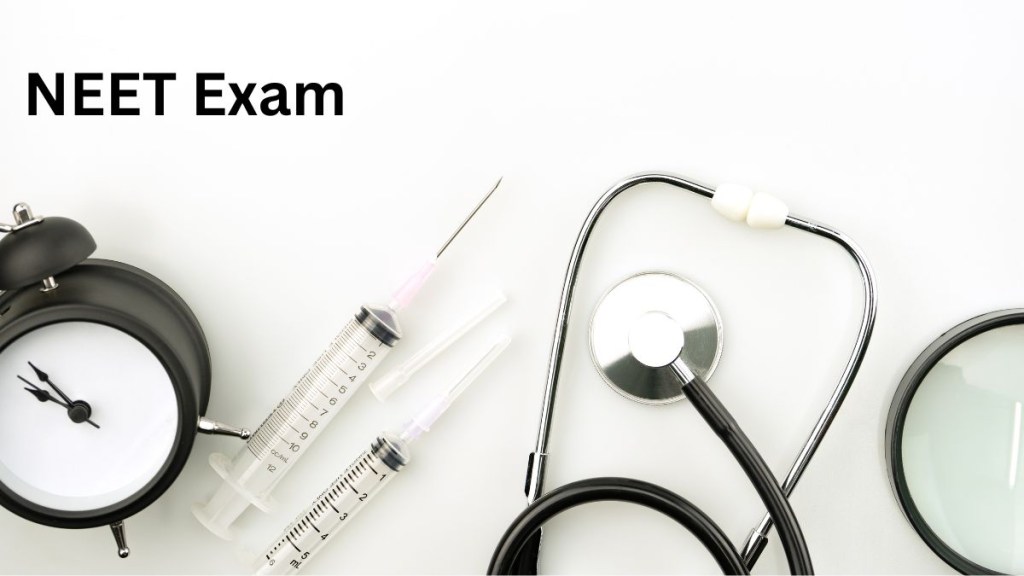Retired Madras High Court judge Justice AK Rajan led panel suggested the Tamil Nadu government to take immediate measures to eliminate the National Eligibility-cum-Entrance Test (NEET) through legal and/or legislative procedures and make higher secondary examination marks as the sole criteria for admission into first-year medical programmes.
The retired judge who led a high-level committee recommended that the government must ensure equal opportunities for students from various educational boards and implement normalization of scores.
The panel was established following the DMK’s ascension to power in the state in 2021 to examine the impact of the NEET-based admission process.
The committee’s report, based on extensive data analysis and inputs from students, parents, and the public, has been published and shared with various state governments to highlight NEET’s detrimental impact on social justice and its discriminatory nature against economically disadvantaged groups.
“DMK was the first to foresee the hazards of #NEET and undertook a large-scale campaign against it,” stated Tamil Nadu Chief Minister and DMK President M. K. Stalin in a post on the social media platform X. He shared the comprehensive report submitted to his government in English and other regional languages.
Recommendations for NEET elimination
In its recommendations, the committee advised that the state government undertake immediate steps to eliminate NEET as a qualifying criterion for admission to medical programs by following the necessary legal and legislative procedures. The committee suggested that the state government assert that the term ‘University education’ in Entry 25 List III is a general provision, while ‘Regulation of Universities’ in Entry II is a special provision. Entry 32, an exclusive state subject, cannot be ignored.
Admissions to affiliated colleges under the Tamil Nadu Dr. MGR Medical University are governed by Act 3 of 2007, and therefore, admissions to these seats should adhere to the provisions of that Act. The state should follow the required procedures to satisfy legal and constitutional provisions. Alternatively, the state government could pass an Act similar to Act 3/2007, indicating the need to eliminate NEET at all levels of medical education, and seek the President’s assent to ensure social justice and protect vulnerable student communities from discrimination in medical education admissions.
Admission criteria, score normalization
The committee recommended that higher secondary scores should become the sole criterion for admission to first-degree medical programs. To ensure equal opportunities for students from different educational boards, normalization of scores should be implemented.
The committee emphasized identifying the socio-economic and other demographic adversities that cause poor performance among disadvantaged and underprivileged students in their HSC examinations. It proposed a re-profiling of scores based on a pre-developed Adversity Score framework.
The report also called for the reformation of school education up to the HSC level to foster ‘learning’ rather than ‘coaching.’ Curriculum, teaching, and learning assessments should be restructured to empower students with subject knowledge and higher-order skills. Rote learning and coaching-focused assessments should be eliminated in favor of assessments that focus on acquired knowledge and skills.
The committee recommended that an Act be passed by the Tamil Nadu Assembly to bring all deemed universities in the state under its jurisdiction, similar to Act 3/2007, and obtain the President’s assent.
Based on the committee’s recommendations, the Tamil Nadu Legislative Assembly unanimously passed a Bill seeking exemption from NEET. However, the Bill is currently awaiting Presidential assent, delayed by the Tamil Nadu Governor.
Nationwide opposition, report dissemination
Chief Minister Stalin noted the growing nationwide opposition to NEET due to recent large-scale discrepancies. “We are sharing the report of the Justice A. K. Rajan Committee in English and all major Indian languages to help everyone better understand the ill effects of NEET,” he stated.
